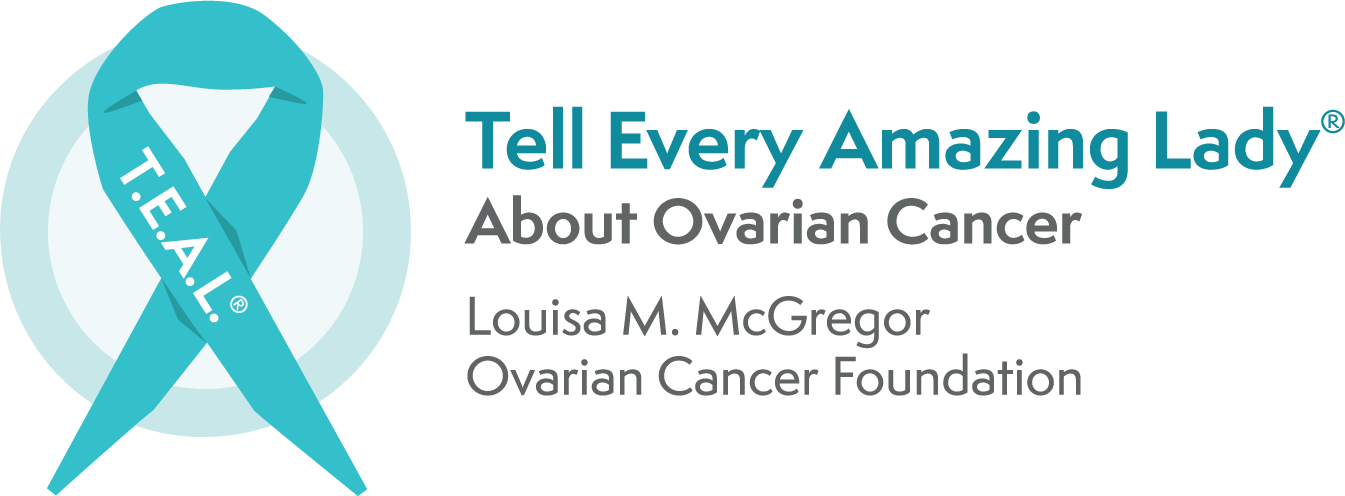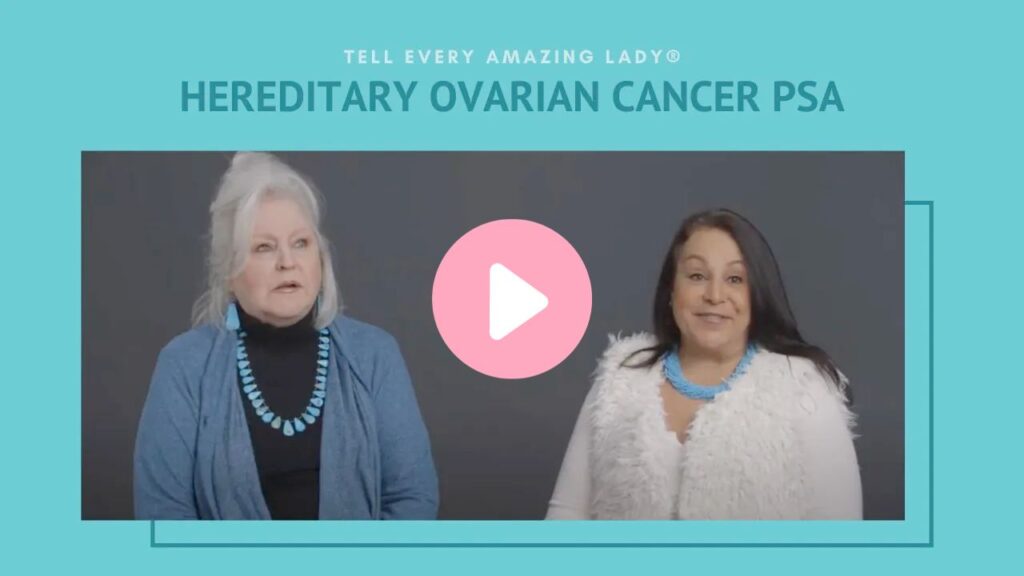Genetic Counseling & Testing
The Importance of Knowing Genetic Risk
What is Genetic Counseling?
Genetic counseling can help determine if a person or family has an increased risk for developing certain cancers, such as ovarian cancer. Most cancers happen by chance, but some are caused by an inherited genetic factor, or gene that is passed down within a family.
For example: the inherited genetic mutations in BRCA1/BRCA2 and Lynch Syndrome genes can lead to a significantly increased risk for ovarian cancer.
Who should consider genetic counseling?
Consider genetic counseling and testing if the following risk factors apply to you:
PERSONAL RISK FACTORS FOR OVARIAN CANCER
- Increasing age, with highest occurrence in women after 50
- History of ovarian, breast, endometrial, colon cancer, pancreatic cancer, or aggressive prostate cancer in men
- Uninterrupted ovulation (having no pregnancies, infertility, or miscarriages)
- Presence of genetic mutations, especially in BRCA1, BRCA2, or in a Lynch Syndrome gene
- Usage of hormone replacement therapy, such as for menopausal symptoms
- Ashkenazi Jewish heritage with a personal and/or family history of breast or ovarian cancer
FAMILIAL RISK FACTORS FOR OVARIAN OR OTHER CANCERS
- Two or more persons on the same side of your family been diagnosed with cancer before age 50 (especially ovarian, breast, endometrial, colon, pancreatic, aggressive prostate, or male breast cancer)
- Two or more closely related people in your family that had the same type of cancer, especially if one diagnosis is before age 50
- Anyone in your family has had multiple primary cancers (for example, breast and ovarian cancer in the same person or bilateral breast cancer with different tumor markers in each breast)
- Anyone in your family has had rare or unusual types of cancer (like male breast cancer)
What Can I expect to Happen in a Genetic Counseling Appointment?
- Review you and your family’s medical and cancer history
- Perform risk-assessment for the likelihood of a hereditary risk in your family
- Review the best options for genetic testing (which genes to test, who to test first in the family)
- Discuss the implications of genetic test results, as well as options for cancer management that include screening and prevention
- Review genetic testing results (testing could have been done by a different ordering provider) and medical management changes associated with the result
What is Genetic Testing?
- Genetic testing is a type of medical testing that identifies changes in chromosomes, genes, or proteins. The results of a genetic test can confirm or rule out a suspected genetic condition or help determine a person’s chance of developing or passing on a genetic disorder.
- Testing can still be beneficial even if you have already been diagnosed. Assessing your risk through genetic testing can provide insight into other hereditary cancers, help you plan future medical decisions — including personalized treatment options — and determine if your family is at risk.
- Do you have a family history of ovarian, breast, colon, endometrial, gastric, or pancreatic cancer? Learn about genetic testing today – download this informational brochure created by T.E.A.L.®.
SOME HELPFUL RESOURCES
- Centers for Disease Control and Prevention: for more on risk factors, risk reduction, and screening.
- Myriad Genetics: for more on the genetics behind hereditary ovarian cancer and assessing your risk for developing it. Take this hereditary cancer quiz to help you determine whether you should be further evaluated for either Hereditary Breast and Ovarian Cancer syndrome or Lynch syndrome.
- Basser Center for BRCA: The Basser Center for BRCA at Penn Medicine’s Abramson Cancer Center is the first comprehensive center for the research, treatment, and prevention of BRCA-related cancers. Devoted to advancing care for people affected by BRCA gene mutations, the Basser Center’s unique model provides funding for collaborative research, education, and outreach programs around the world.
- National Society of Genetic Counselors: to find a genetics counselor in your area.
Lets Talk About Genetics and Surgical Menopause
Watch our episode of “Lets Talk about Genetics and Surgical Menopause on the T.E.A.L.® Couch ”, with special guest; Golda Arthur; creator of the Overlooked Podcast. In this episode we dive into the importance of genetics, regular gynecologic health visits in prevention and early detection of ovarian cancer, surgical menopause, among many other health issues.

